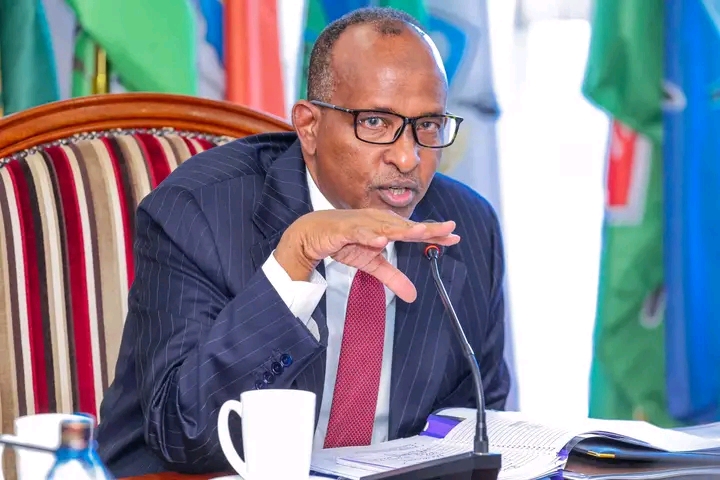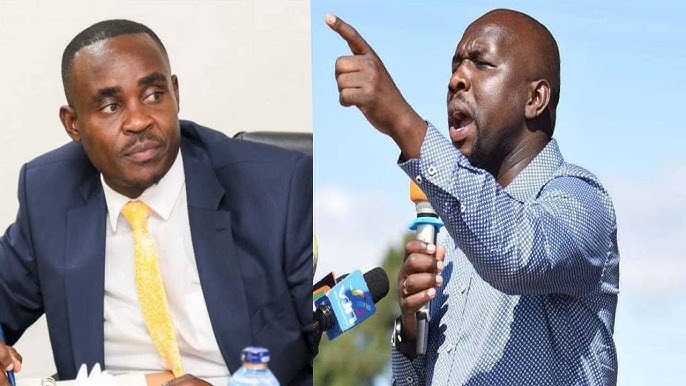Kenya Cancels Ksh190 Billion Nairobi-Nakuru Highway Construction Deal With France
The Kenyan government has cancelled a Ksh190 billion (€1.3 billion) deal with a French company that had been hired to construct the Nairobi-Nakuru dual carriageway.
President William Rutos administration has reportedly made a significant shift in its infrastructure development strategy by terminating a major highway construction deal initially signed with a French company and instead awarding the project to a Chinese contractor. This development marks a departure from the multi-billion-shilling agreement signed in 2020 by former President Uhuru Kenyatta during his state visit to Paris, France.
The deal involved the construction of a 140-kilometre dual carriageway designed to ease traffic congestion along the busy Nairobi-Nakuru highway. However, sources close to the matter revealed that the current administration decided to scrap the agreement after a review initiated by the Kenya National Highways Authority (KeNHA) raised several concerns. The authority reportedly asked for a restructuring of the initial agreement due to financial sustainability issues. Unfortunately, the proposed changes were deemed unbankable, which led to a deadlock between the involved parties.
According to a KeNHA official who spoke to Reuters, the inability to reach a consensus on the restructured terms left the government with no other option but to terminate the contract. As a result, KeNHA issued a notice of termination, officially ending the Public-Private Partnership (PPP) that had been expected to help fund and implement the project. The authority and government were particularly concerned that proceeding with the original deal would result in the government shouldering more of the financial burden than initially anticipated.
Following the termination, the government promptly initiated fresh negotiations with a Chinese construction firm. This new move is part of President Rutos broader plan to revamp infrastructure through partnerships that offer better value for money and deliver faster results. The new contractor is expected to take over the implementation of the dual carriageway project, with the government maintaining the PPP model but under more favorable terms.
The dual carriageway project is expected to significantly reduce the traffic burden along the Nairobi-Nakuru road, which is one of the busiest highways in the country. It serves as a major link between Nairobi and the western parts of Kenya, and eventually connects to the border town of Malaba, facilitating regional trade with Uganda and other East African countries.
President Ruto, while speaking during a church service in Uasin Gishu County on December 22, 2024, confirmed the governments commitment to the project. He assured Kenyans that the construction would commence this year, emphasizing the importance of infrastructure in driving economic development. According to the Head of State, the project would be implemented in two phases. The first phase will cover the stretch from Nairobi to Nakuru, while the second phase will extend the road from Nakuru to Malaba.
President Ruto called on citizens to remain patient and understanding as the government works to fulfill its infrastructure development promises. He pointed out that similar plans were underway for other stalled or incomplete roads across the country. The president reiterated his administration’s intention to complete all pending infrastructure projects and ensure that every region in the country benefits from improved road connectivity.
The change in contractors and the restructured approach to the Nairobi-Nakuru highway is being viewed by some observers as a sign of the Ruto administration’s willingness to make tough decisions in pursuit of more efficient governance and better outcomes for the public. While some critics have questioned the consistency and potential diplomatic implications of canceling an already signed deal, others argue that it is better to renegotiate or abandon financially unsound agreements rather than continue with projects that could become economic burdens in the future.
Infrastructure remains a key pillar of President Ruto’s development agenda, and his administration appears keen on fast-tracking high-impact projects to stimulate economic growth, improve transportation, and boost regional integration. The government is also under pressure to deliver tangible development outcomes, particularly in areas where road infrastructure has lagged behind.
As construction plans for the Nairobi-Nakuru highway take shape under the new contractor, all eyes will be on the government to see how efficiently and transparently the project will be executed. The successful completion of the dual carriageway would not only ease traffic congestion but also enhance trade, reduce travel time, and contribute to national development. The coming months will be crucial in determining the effectiveness of this strategic pivot and the overall delivery of Kenya’s infrastructure promises.













